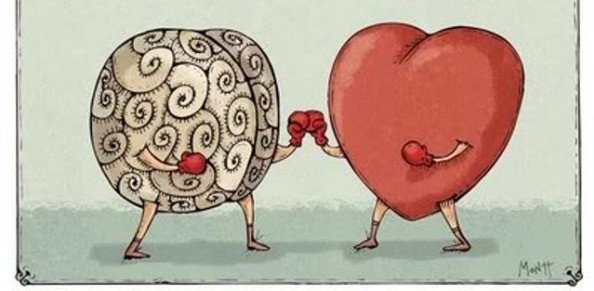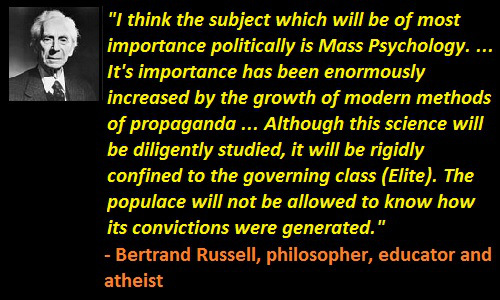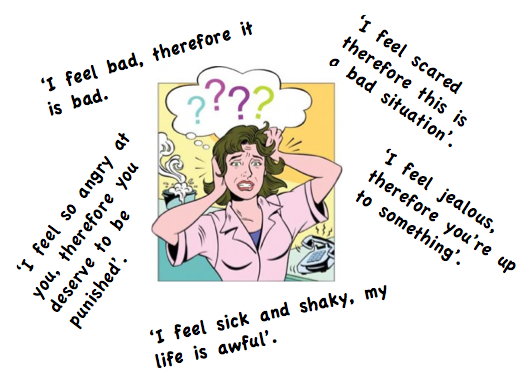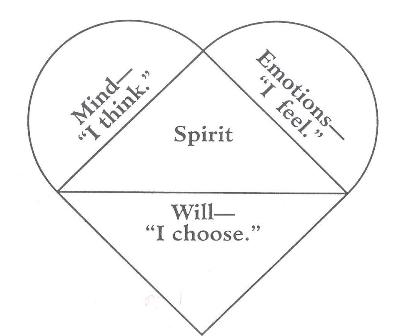When a man has given up the desires of his heart and is satisfied with the Self alone, be sure that he has reached the highest state.” – Lord Krishna in The Bhagavad Gita

Emotional Reasoning: I Feel It, So It Is True, Right?
The subject of love, compassion, and the heart center has been a recurring theme that is popping up in my own life, as well as the world around me. I was recently in a class with some fellows from the Order and the topic was love and “opening the heart”. The emphasis of the teachings given as of late have been very “heart centered”, focusing on “ripping the heart open” and allowing it to “gush”. Opening the heart center and having it fully activated is essential for spiritual growth and development, just as I understand it as a specific lesson for my own incarnation here. However, I am also seeing what is becoming a BIG problem with what I would describe as reckless, emotion-driven “heart gushing”. This is essentially when the heart becomes ensnared and motivated by emotions and the subconscious/unconscious belief systems that create them. This is a problem that appears to be afflicting people across the Western world, including many in various spiritual communities.
During the class, a fellow spoke of how they could not watch a movie with the slightest amount of pathos without going to tears. While this is natural for many and not a bad thing, it is a reaction, and understanding the mechanics of how reactions are triggered within us is something everyone should understand, so as to avoid becoming reactionary, which is antithetical to Self-Mastery. I have detailed in previous articles as to the specifics of how media, in particular film and television, are specifically designed to target the emotional center, while bypassing the logic/reasoning center in order to implant beliefs and ideals into the subconscious. This is proven neuroscience and psychology, but we don’t even need to be told that to know that if we watched the movie “My Girl”, we probably cried when little Macaulay Culkin died. Now Macaulay Culkin didn’t really die; that was a fictional scenario, but it FELT SO REAL, because we suspended our disbelief and became engrossed in the movie.
The above scenario described had to do with fictional television and movies, which most people on a conscious level know are not real (except for so-called “reality TV” which some people do think is real), but what of those things that we see on the television or the Internet or even the newspapers that claim that they ARE real? What of those images we are given that are meant to evoke a certain emotional response from the viewer? As anyone who has seriously studied advertising, film, photography, or graphic art and design (such as myself) will tell you that the colors, symbols, imagery and scenarios are chosen to create a desired effect on the subconscious, ultimately triggering an emotional response on the viewer. Now, this imagery can be psychologically empowering or destructive, depending on the motivations of the artist as well as the state of the viewer, but in either case, the subconscious is being worked on and to some degree, manipulated. Well-crafted visual art and media is entirely about reaching into the subconscious and unconscious mind of the viewer, and establishing some sort of relationship with it.
A great case as to how this all works is the image of the drowned Middle Eastern boy washed up on the beach that caused such an outcry among Westerners in favor of admitting the “Syrian refugees”. This was an image that was printed and reprinted in newspapers and news websites and blogs and shown on television to a point of hyper-saturation. However it turned out that the family was not living in Syria and they were not fleeing ISIS. Some stories state the father was trying to see a dentist, as they are free for non-taxpayers. Others suggest that he was a human smuggler. I am not going to judge the father here, as I do not know the full breadth of the situation, but the undeniable truth here is that the media across the Western world misled people into believing a scenario in a photograph was one thing when it was another. This was done through manipulation of people’s emotions and is completely political and subversive in motivation, as is increasingly evident through the words and actions of those in positions of power.

How TV Uses NLP to Brainwash You
When someone manipulates emotions, they can get someone to do things that may not necessarily be in their best interest. This is commonly done through triggering emotions like sympathy and guilt. There is a reason Nietzsche referred to sympathy as something belonging to the realm of pathology. Pathology, which is a process of disease or imbalance, is indicated in the word “sympathy”, as it is in any other word that ends in the suffix “path” or “pathy”. Sympathy is a state of “feeling sorry” for someone, which is disempowering for both parties. Sympathy is defined as “feelings of pity and sorrow for someone else’s misfortune”.
Nietzsche explained the disempowering nature of this emotion when he stated that
Pity stands in opposition to all the tonic passions that augment the energy of the feeling of aliveness: it is a depressant.
An example of how pity could be seen as pathology can be seen in a recent story out of Sweden when a woman was raped by a migrant. The woman stated that she did not report the incident because she “felt sorry for him” and did not want him to be deported. She did not know this man or his story. The person and the story she held in her mind was one that was based in belief, not fact. This story evoked the emotions of pity as well as guilt. She felt sorry for the idea of the man based on a story someone else told her that she believed. She did not feel sorry for the man himself, as she knew nothing about him. At the end of the day, feeling sorry for another person is no more helpful than feeling sorry for oneself and does nothing to raise or elevate anyone to a state of greater spiritual strength and evolution, and ultimately harms all those involved.
This pathology is evident in those who reside in a continual state of emotional dominance. One can reside in a state of emotional dominance just as one can reside in a state of intellectual dominance. In our modern political discourse, it is emotion that really runs the show. While the Right tends to be triggered by fear and self-preservation, the Left tends to be triggered by pity and guilt, which leads to self-destruction. All of these are pathological, as living in fear of death and marching oneself off a cliff are equally fruitless, but since we are looking specifically at sympathy we will use the example of a “politically correct” Left-leaning individual. This person might put their emotionally charged views on blast, being vocal and active for the cause of “righteousness”, and then settle there, satisfied, similarly to what one feels like after eating a good meal. They may think to themselves, “Man, do I feel good about how compassionate and loving I am by backing this issue. I am on the right side of this one.”
This is of course a trap of the lower ego. Unfortunately, many who work or volunteer for Left-leaning “social justice” causes often fall into this trap of emotion-based self-righteousness, believing that all should be forced to share in their beliefs by the gun of government.
This sort of imbalance in a person is often signified by a reliance on what is known as “emotional reasoning”. Emotional reasoning is a cognitive distortion that occurs when one justifies actions strictly based on emotion; i.e. “I feel strongly about this, so I am right”. This is the belief that feeling deeply about something makes it just and true. “I feel this to be so, so it must be so”. Emotional reasoning has become pandemic in much of modern Western society, particularly on the socio-political “Left”, which has come to dominate the overall discourse of society and culture.

Bad Thinking Habits: Snapshot Examples and Solutions
In contrast to all of this, we have the virtue of compassion, which is simply the ability to “identify” with one’s feelings, i.e. “I relate to your suffering because I have suffered similarly”. Of course it is hard to relate to that which we have not consciously experienced, but we are on some level capable of this type of empathy nonetheless. That being said, compassion is not obligation, compassion is not sympathy, compassion is not guilt. Compassion as I understand it is being of service, but it is also using discernment as to whether or not such service is going to ultimately benefit or harm. This why clearing out emotional clutter is so important, so we can wisely use the heart center rather than let it be driven by unbalanced emotion and beliefs.
This brings us to the other side of love referred to as “tough love”. This is the sort of love a mother bird shows its babies when she tosses them from the nest. She knows that in order for them to survive and thrive, this action that may seem harsh, is necessary. The same thing goes for the man who is an alcoholic who needs to hit rock bottom in order to find recovery and ultimately the spiritual empowerment that comes from that. If this was not allowed to happen: if some well meaning individual or group continued to supply him with everything he needed, then it is more than likely this individual would simply continue the same self-destructive behaviors and never reach a point of true empowerment and wellbeing. Human beings need discomfort and suffering in order to grow. These are things that are the dictates of the individual experiencing the suffering as well as the karma attached to that group or individual, neither of which can be discerned from a photo or a television screen.
We in modern society have been conditioned to abhor suffering and think of it as a bad thing. We see suffering in others and see it as a bad thing. We seek to alleviate suffering AS SOON AS POSSIBLE. This is what a good portion of the general public is doing with the migrant crisis. They are suffering psychologically from the guilt of living comfortably. Therefore they are seeking to alleviate this suffering by doing whatever they can to alleviate the suffering they are told is happening to others. This is of course based in the emotions of guilt and pity, both of which are disempowering and can never amount to anything but disempowerment for all parties involved. It is also rooted in an over-identification with the physical and a fear of death. For those of a “Christian” persuasion, this could be likened to the desire to stop the Crucifixion so Jesus doesn’t suffer and ultimately die.
The heart center is what allows us to feel and truly experience life. Feeling IS NOT emotion. In a physical sense, emotion stems from the digestive/gut area, while feeling stems from the heart. Emotion happens when feeling is ensnared by reactions, which are a product of subconscious beliefs. When emotion is driving our heart, we have a problem. This is why it is so important to sort through and throw out our emotional baggage and the belief systems they have created- they can pretend to be something they are not.
All of these things I have described come from being in a state of imbalance. We want to maintain a place of balance between all three centers; Mind, Heart, and Will, as each serves and strengthens the other, and when one is out of balanced it effects the other two. These centers correlate with the Divine Masculine, the Divine Feminine and the Divine Child, respectively. If we are completely heart-focused, and neglect one or both of the other two centers, we revert to a state of child-like naivety. In this state we are easily led, easily fooled and easily manipulated, like the trusting child lured into the van of a pedophile with an ice cream cone.
At the same time we don’t want to be completely mind-centered or will-centered, as imbalance of these things can bring about issues like heartless rationalism and thoughtless action. This internal trinity seeks a form of balance or equilibrium, and we will suffer in one way or another until that is achieved. We want strength in Mind, Heart and Will, not relying on one over the other.

Book Review: Coping With Cancer
This is where the Self comes in. The Self is our “internal Sun” and the place of balance and equilibrium. The Self is the Christ within- “this little Light of mine.” Austrian mystic Rudolf Steiner understood the nature of the Christ to be one who brought balance to polarities. It is this Self; this internal Christ, which when fully attuned to, brings balance and harmony to the energy centers of the body, as well as our lives. This is what allows us to be in the place where our mind is open, our heart is open, and our will to right-action is fully activated. This is what will bring us to a place of strength and unity in our mind, heart, and will, which will allow us to achieve the personal sovereignty and mastery we are here to achieve, as well as the ability to be of service in the completion of “The Great Work“.
So in closing I want to emphasize the following five points:
1. Develop a relationship with Self.
2. Focus on balance of the Mind, Heart, and Will/Action centers.
3. Pitying someone is to look down on them, while having compassion is to lift them up. This could be seen as the difference between “giving a man a fish” and “teaching him to fish”.
4. Don’t immediately buy into social-political narratives the mainstream media pushes that trigger your emotions. If a narrative is pushed into the culture to the point of saturation, it has an agenda and it’s probably all or in part bullshit. In other words don’t believe everything you see on TV- especially if you see it a lot.
5. Be mindful of emotional reasoning and emotion-centered moral righteousness.
Those who have ears to hear should hear. Namaste and God Bless.
Originally posted at “Lightning Warriors“
Source Article from http://renegadetribune.com/problem-heart-centeredness/
 RSS Feed
RSS Feed















 March 3rd, 2016
March 3rd, 2016  Awake Goy
Awake Goy  Posted in
Posted in  Tags:
Tags: 













